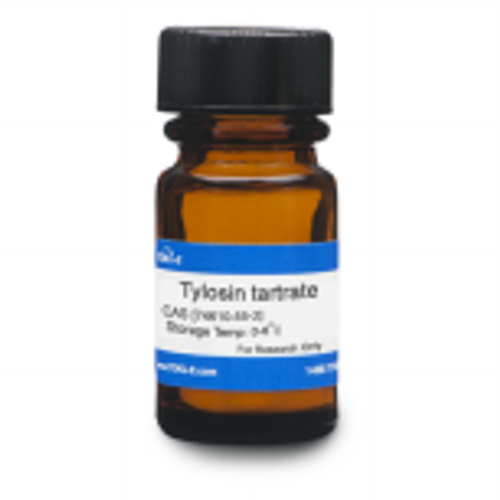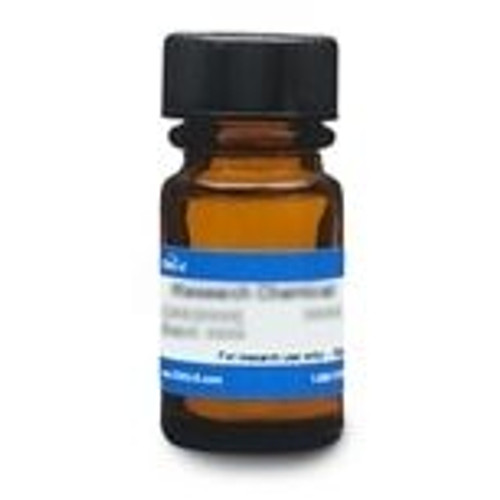Tylosin Tartrate is a macrolide antibiotic that was originally isolated from Streptomyces fradiae by the Lilly Research Laboratories in 1961 from soil collected in Thailand. Tylosin is a mixture of four macrolide antibiotics, the main component of the mixture (> 80%) is Tylosin A. The remaining antibiotics may also be present: (Tylosin B (desmycosin), Tylosin C (macrocin), and Tylosin D (relomycin). Tylosin has broad-spectrum bacteriostatic activity against Gram-positive bacteria and mycoplasma, but much less activity against most Gram-negative bacteria and fungi.
Tylosin, like other Macrolide antibiotics, is a bacteriostatic compound that reversibly bind to the 23S rRNA in the 50S (L27 protein) ribosome subunit and inhibit mRNA-directed protein synthesis.
Tylosin has been used to study protein synthesis, abscess prevention in cattle systems, and Mycoplasma infections.
We also offer:
| Mechanism of Action | Macrolide antibiotics inhibit bacterial growth by targeting the 50S ribosomal subunit preventing peptide bond formation and translocation during protein synthesis. Resistance to Tylosin Tartate is commonly attributed to mutations in 50S rRNA preventing Tylosin Tartate binding allowing the cell to synthesize proteins free of error. |
| Spectrum | Tylosin Tartate targets primarily Gram-positive bacteria and species of the Mycoplasma genus. |
| Purity Level | Composition
|
| Microbiology Applications | Tylosin Tartate is commonly used in clinical in vitro microbiological antimicrobial susceptibility tests (panels, discs, and MIC strips) against gram positive and Mycoplasma microbial isolates. Medical microbiologists use AST results to recommend antibiotic treatment options. Representative MIC values include:
|
| Molecular Formula | C46H77NO17 · C4H606 |
| References |
Lovmar, M and Tenson T (2003) The Mechanism of action of macrolides, Lincosamides and Streptogramin B reveals the nascent peptide exit path in the ribosome. J. Molec. Microbiol. 330(5):1005-1014 Vander Heyden Y et al (1999) Interlaboratory studies on two high-performance liquid chromatographic assays for tylosin (tartrate). J. Chromatog. A. 830 (1):3-28 |
| MIC | Haemophilus parasuis| 2.5 - 40|| Mycoplasma hyosynoviae| ≤0.25 - 1|| Paenibacillus larvae| 0.016 - 0.031|| |








